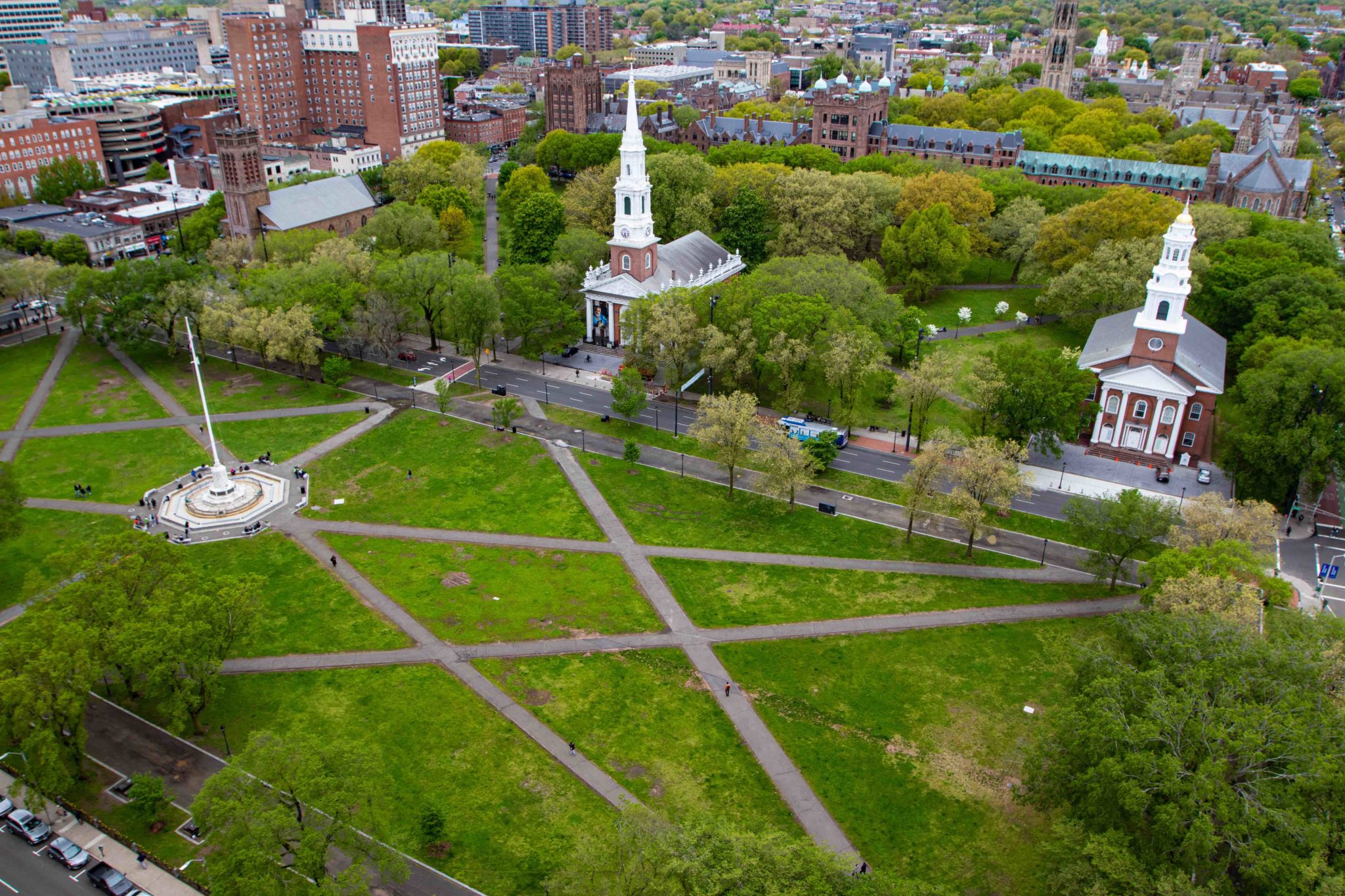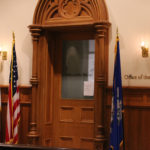New Haven Democracy Fund grants funds to Republican mayoral candidate for first time
The Democracy Fund distributed money to both Mayor Justin Elicker and mayoral candidate John Carlson — the first GOP candidate to qualify for the Fund.

James Larson, Senior Photographer
This election cycle, New Haven’s 14-year-old Democracy Fund is providing public dollars to both the Republican and Democratic mayoral candidates. The Republican candidate, John Carlson, is the first Republican to ever receive financing from the Fund.
The Democracy Fund is a voluntary public financing program which distributes funding to New Haven mayoral candidates, provided that they meet the requirements and follow certain parameters in their fundraising. Candidates must raise at least 200 contributions of $10 or more from registered New Haven voters and collect at least $5,000 total to qualify. Furthermore, they must cap individual contributions at $390, forgo political action committee donations and limit total expenditures to $390,000. If a candidate adheres to these criteria, the Fund awards them with a hybrid financing program consisting of a $20,000 grant and a two to one matching rate for local contributions of $10 to $30. At the Fund’s monthly board meeting last Wednesday, members approved the distribution of $31,449 to Mayor Justin Elicker and $29,148 to Carlson.
“Having the Democracy Fund for so many years now has really showed voters in New Haven how important it is to have transparency,” Fund administrator Alyson Heimer said in an interview with Dateline New Haven. “The option of participating is a fantastic thing that really says you know who you are and what you think your own fundraising base is going to be straight from the beginning.”
The Fund aims to amplify the significance of small contributions and to limit the influence of campaign contributions on New Haven’s public policy, according to its website. It is the only municipal public-financing system of its kind in Connecticut. The November mayoral election marks the first time two major party candidates have voluntarily sought funding from the Democracy Fund.
In fact, the Fund’s grant makes up nearly half of Carlson’s campaign spending: As of August, he had promised to stop fundraising after accumulating $75,000 in total contributions.
Once they qualify for the Fund, participants are required to engage in a public debate.
The Fund held this event at Cooperative Arts & Humanities High School on Oct. 19, during which the mayoral hopefuls clashed on topics ranging from education to air pollution. According to Bass, who served as moderator, the Fund’s debate was a boon to the city.
“I think that debate was sort of the highlight of the campaign,” Bass said on Dateline New Haven. “I think that’s the time when most people paid attention to a race that otherwise isn’t getting a lot of attention. There was such a wide range of topics from affordable housing to leaf blowers to crime to budgeting to schools, I felt I really learned where they all stood.”
During the debate, an anonymous resident submitted a comment questioning if Elicker retaining primary campaign funding into the general election went against the spirit of the Fund. The comment referred to the fact that Elicker received financing from the Fund in two installments during his campaign: during the primary election and on Wednesday, for the general election.
In the months preceding the September Democratic primary, Elicker obtained more than $62,000 from the Fund in his race against challenger Karen DuBois-Walton. DuBois-Walton ultimately dropped out of the race in July, clinching the nomination for Elicker. Despite DuBois-Walton’s withdrawal and Elicker’s subsequent unanimous nomination, he was allowed to retain the Fund’s $62,000 grant for the general election.
Carlson echoed the resident’s concern, stating that the funds should be returned in light of the uncontested election.
“I would have given the money back. The money was for the primary, the primary did not happen,” Carlson said. “Therefore the money should go back. This underscores the importance of having bipartisan support on the Democracy Fund.”
However, Elicker argued that the additional funding does not contradict the goal of the Fund.
“I’ve been, as everyone knows who follows politics, one of the strongest advocates for the Democracy Fund,” Elicker said. “I’m following the rules of the Democracy Fund and continue to advocate for those rules … I could have accepted $2,000 total [as opposed to $390] from those individuals.”
Fund administrator Heimer concurred in her interview with Dateline New Haven, stating that Elicker’s twofold reception of funding was permitted within the program’s framework.
Elicker had to expend resources in primary campaigning despite the election’s ultimate cancellation, she explained.
“I don’t think it’s unfair,” Heimer said. “None of our rules have been broken by doing that. The Elicker campaign, I want to make clear, has been very compliant … DuBois-Walton and Elicker both raised money in the primary, thinking that they were going to have a real race and therefore they spent money in the primary.”
The Fund’s board is currently considering reworking its rules and will be looking at this issue among others, Heimer said. They will be inspecting all aspects of the ordinance that may be “outdated,” such as the 200 contribution barrier to entry, she explained.
The election will take place on Nov. 2.








